Browse
Education
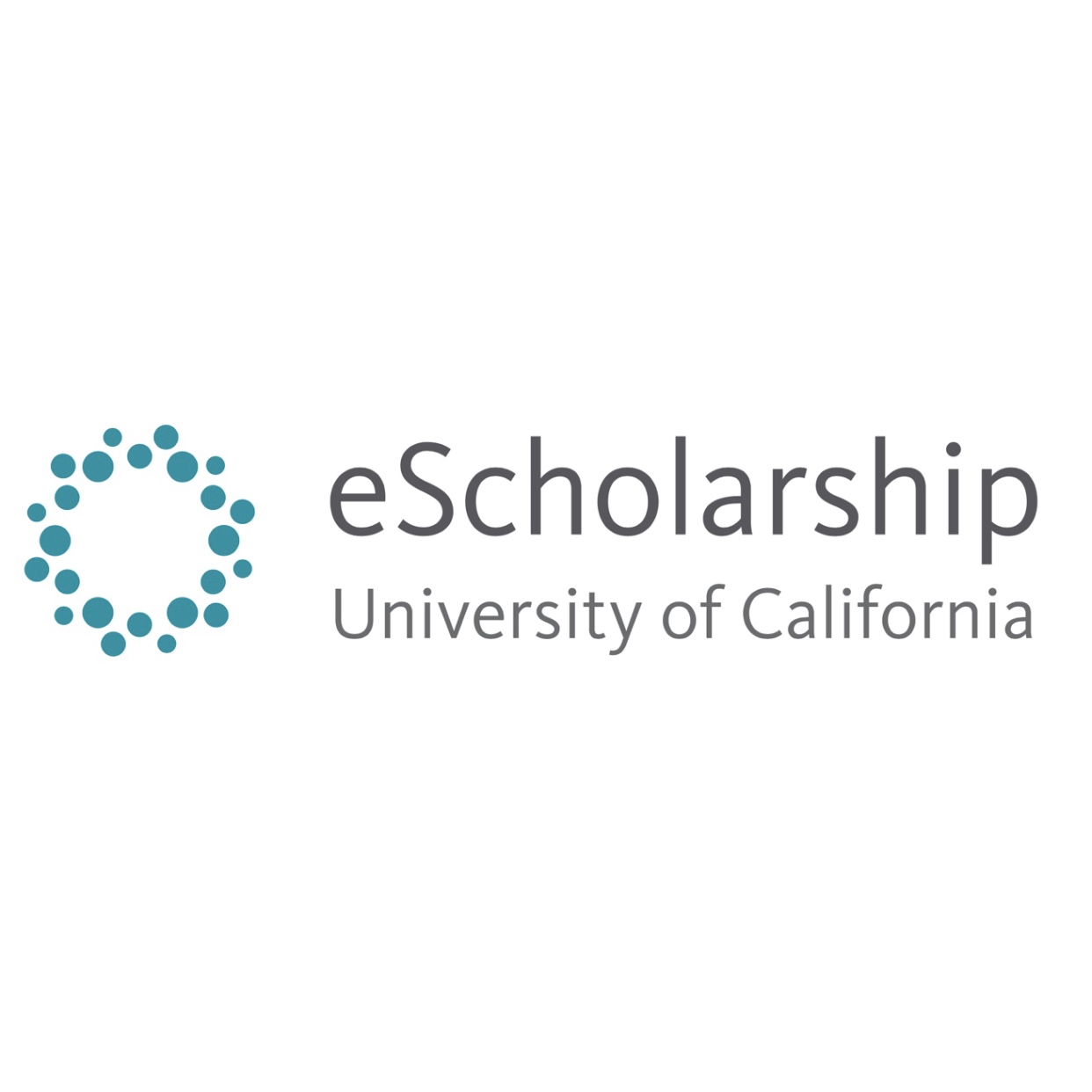
No Preview Available
Ufahamu: A Journal of African Studies, Call for Submissions
CALL FOR PAPERS CLOSES FEBRUARY 15TH
SEND SUBMISSIONS TO UFAHAMU@GMAIL.COM
CALL FOR PAPERS FOR UFAHAMU
DUE FEB. 15, 2022
The editors of Ufahamu: A Journal of African Studies are currently accepting submissions for Volume 43, Issue 2. In honor of the journal’s recent 50th anniversary of publication, this special retrospective issue will include republished essays from the back catalog alongside new submissions including, but not limited to:
Essays
Poems
Book reviews
Visual arts
This call gives special consideration to those submissions which directly engage with the themes covered in the first decades of Ufahamu’s publication. Examples include direct engagement with a previously published article in Ufahamu, a paper written through citations of past Ufahamu writings, or any submission addressing themes such as:
Anti-colonialism
National liberation
Consciousness
Pan-Africanism
Black Marxisms
Diaspora
Activist-intellectualism
and much more!
The editors are also soliciting articles concerning contemporary political issues in Africa and the diaspora in the spirit of Ufahamu’s original activist-academic ethos.
Ufahamu’s full catalog is freely available and digitized at
https://escholarship.org/uc/international_asc_ufahamu/1/1
For more information about Ufahamu, please visit https://international.ucla.edu/asc/ufahamu
----------------
Information forwarded by the UCLA African Studies Center – www.international.ucla.edu/africa
Read more

By: Raquel Acosta
Due Date: Feb, 15, 2022
Culture and society
+1
Leave a comment

No Preview Available
Support for Summer Akan, Swahili, Wolof Study
Indiana University is accepting applications for fellowships and scholarships to support study in its intensive summer programs in Akan, Swahili or Wolof in summer 2022.
Courses are offered in an in-person/online hybrid format or a fully online format.
Participants may also join a 1-credit African Studies course in English: "Military Engagement and Global Power Competition in Africa."
All participants pay in-state tuition and earn 6-10 credits.
Several scholarship and fellowship programs are available.
Funding and priority admission application deadline is January 29, 2022.
See http://languageworkshop.indiana.edu for course-by-course details and application forms.
Questions? Write to us at languageworkshop@indiana.edu
Read more or reply
Read more

By: Raquel Acosta
Due Date: Jan, 29, 2022
Education
Leave a comment
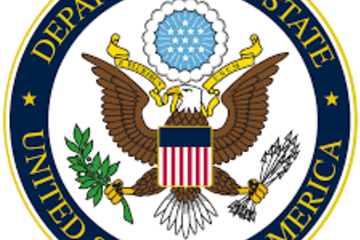
U.S. Mission in Uganda Public Affairs Annual Program Statement
The U.S. Mission in Uganda’s Public Affairs Office is pleased to announce that funding is available through the Public Diplomacy Grant Program for projects ranging in value from $5,000 to $40,000. Projects for greater values will be considered on a case-by-case basis.
Grants are intended for committed and organized civil-society organizations, local representatives of civil society, think tanks, non-governmental organizations, cultural institutions, and academic institutions. Awards to individuals will also be considered on a case-by-case basis. All grantees must have a non-profit status.
Notice: For Fiscal Year 2022 all proposals submitted in response to this Annual Program Statement must include a contingency plan describing how the proposed activity would be implemented in the event that COVID-19 related health restrictions are in place during the anticipated period of performance.
Objectives and Project Outcomes:
The objectives of the Public Diplomacy Grant Program are to promote positive relations between the people of Uganda and the United States; reinforce shared values; and connect high potential Ugandan youth and young professionals (aged 16 to 35) as well as established professional leaders to the American people through projects that:
Help Ugandan youth aged 16 – 35, especially young women, explore and discover their potential through innovative science, technology, engineering, and math (STEM) programs, as well as entrepreneurship programs.
Encourage Ugandan youth aged 16 – 35 to participate in civic life through social entrepreneurship, volunteerism, and community engagement.
Strengthen understanding of U.S. values and institutions; highlight U.S. culture, including American Studies; and support diversity, inclusion, and equality.
Utilize the power of the arts to promote positive self-expression, social change, and economic opportunity among Ugandan youth aged 16 – 35.
Equip emerging community leaders (e.g., sports coaches, arts instructors, and cultural professionals) aged 22 – 35 with the skills and knowledge necessary to grow their organizations or to enhance their engagement with youth audiences.
Promote the development and application of new technologies and innovative solutions to economic, environmental, and social challenges. Projects could connect U.S. technology or public policy experts with Ugandan peers or foster the application of American technology and innovations to address challenges in Ugandan communities.
Support civil society organizations (CSOs) in developing a vibrant and prosperous democratic society through programs that strengthen NGO management, enhance the skills of early to mid-career NGO/CSO professionals, strengthen networks between NGO/CSO professionals in the United States and Uganda, or demonstrate to the public the positive role CSOs play in advancing a prosperous, healthy, and informed society.
U.S. Content
In order to be eligible for funding consideration, proposals must demonstrate significant U.S. content. U.S. content can include, for example, the substantial participation of U.S. experts or alumni of U.S. government exchange programs, partnership with U.S. organizations or educational institutions, the involvement of U.S. companies present in Uganda, the application or adaptation of U.S. models and best practices, or learning materials related to American history, society, culture, government, or institutions. Initiatives that promote sustained cooperation between the people of the United States and Uganda even after program funding has concluded are encouraged. Proposals without significant U.S. content will not be considered for funding.
Activities that are typically funded include, but are not limited to:
Programs that reinforce and amplify lessons learned by alumni of State Department-funded exchange programs (both American and Ugandan alumni);
Youth engagement and leadership programs;
Workshops, seminars, trainings, and master classes on American themes or issues of mutual interest mentioned in the above goals of the Program;
Programs to empower young women;
Radio, television, and social media training and programming in support of the above program objectives;
Programs designed as a partnership between a Ugandan and U.S. organization;
Initiatives in support of the above program objectives that make creative use of the Mission’s American Center in Kampala or Nile Explorer bus, a mobile classroom that provides extracurricular learning opportunities in STEM and other subjects through visits to underserved communities across Uganda.
Activities that are not typically funded include, but are not limited to:
Social welfare, community development, or vocational skilling projects,
Fees and travel costs to attend conferences in the United States,
Ongoing salary costs and office equipment,
Paying to complete activities begun with other funds,
Projects that are inherently political in nature or that contain the appearance of partisanship/support to individual or single party electoral campaigns,
Political party activities,
Projects that support specific religious activities,
Trade activities; fundraising campaigns; commercial projects; scientific research; construction projects; or projects whose primary aim is the institutional development of the organization itself.
For more information or to apply, please visit grants.gov
Read more
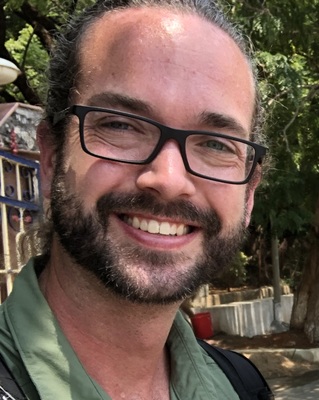
By: Derek Tobias
Due Date: May, 30, 2022
Youth empowerment
+1
Leave a comment
No Preview Available
Call For Papers: 8th International Conference on Higher Education Advances
We are pleased to announce the Eighth International Conference on Higher Education Advances (HEAd’22), as a hybrid conference (in-person and virtual conference, simultaneously). Every year, HEAd brings together around 250 participants from more than 50 countries to exchange ideas, experiences and research results related to the preparation of students, teaching/learning methodologies and the organization of educational systems.
The HEAd'22 conference will be held on June 14-17, 2022 on the Faculty of Business Administration and Management of the Universitat Politècnica de València (UPV), which has been recently ranked as the best technical university in Spain by the Academic Ranking of World Universities (ARWU) 2021.
The program committee encourages the submission of articles that communicate applied and empirical findings of interest to higher education professionals.
Topics of interest include, but are not limited to, the following topic areas:
Innovative materials and new tools for teaching
Educational technology (e.g., virtual labs, e-learning)
Evaluation and assessment of student learning
Emerging technologies in learning (e.g., MOOC, OER, gamification)
Scientific and research education
Experiences outside the classroom (e.g., practicums, mobility)
New teaching/learning theories and models
Globalization in education and education reforms
Education economics
Teaching and learning experiences
Entrepreneurship and learning for employment
Education accreditation, quality and assessment
Competency-based learning and skill assessment
Important Dates
Submission deadline: February 4, 2022Acceptance notification: April 6, 2022Camera ready due: April 25, 2022Conference dates: June 14-17, 2022
Publications
All accepted papers will appear in the conference proceedings with a DOI and ISBN number. They will be published in open access by UPV Press and submitted to be indexed in major international bibliographic databases. Previous editions are indexed in Scopus and the Thomson-Reuters Conference Proceedings Citation Index - Web of Science Core Collection (former ISI Proceedings).
Awards
The Program Committee will select the winners for the Best Paper and Best Student Paper awards. To be eligible for the best student paper award, the presenting author of the paper must be a full-time student.
Submission guidelines
Authors from all over the world are invited to submit original and unpublished papers, which are not under review in any other conference or journal. All papers will be peer reviewed by the program committee based on their originality, significance, methodological soundness, and clarity of exposition.
Submitted papers must be written in English and should be in PDF format. They must follow the instructions in the template file, available in Microsoft Word format at:
http://www.headconf.org/template.docx
Paper length must be between 4 and 8 pages, incorporating all text, references, figures and tables. Submissions imply the willingness of at least one author to register, attend the conference, and present the paper.
HEAd'22 is using the OCS platform of UPV Press to manage the submissions. This platform provides you with a submissions homepage where you can register your paper submission and make appropriate changes. The submission website is:
http://www.headconf.org/submission-instructions/
The organizing committee looks forward to welcoming you all to a fruitful conference with open discussions and important networking to promote high quality education.
Read more

By: Raquel Acosta
Due Date: Feb, 4, 2022
Education
Leave a comment

English Access Microscholarship Program - Kenya
The US Embassy Nairobi invites interested applicants to submit proposals from implementing partners for 2022 -2023 English Access Microscholarship Program (Access) in response to the reference Notice of Funding Announcement (NOFO). Due to the uncertain situation with the COVID19 pandemic in Kenya, the Program might be delayed or postponed. There might also be restrictions in numbers of people who can attend public gatherings, travels and curfews hours, which might affect the implementation of the program. In this regard the submitted proposal should have an innovative component to engage Access students both in person and virtually. For virtual programs, proposals should offer creative ideas for remote/online content delivery, online/virtual promotional activities, and virtual participant/audience follow-up.
Background Information
The English Access Microscholarship Program (Access) is a global program supported by the U.S Department of State. Access provides highly motivated economically disadvantaged youth with an opportunity to learn English language skills and enhance leadership through teaching the basics of American culture and values of democratic development and civic engagement. It gives participants skills that may lead to better jobs and educational prospects. The program targets 13 – 20 year old students from underprivileged families to participate in afterschool instructions and intensive sessions. Since its inception in 2004, approximately 198,408 students in more than 95 countries have participated in the Access Program. In Kenya, there are more than 780 Access alumni, many of who are studying at, or have graduated from, top-tier universities throughout the country. The Access program must provide two years of English study, consisting of at least 180 hours of instruction per year.
The goal of the Access Program is to equip bright, talented, economically deserving students with a range of global citizenship skills anchored by the core components of enhanced English language skills and a stronger Kenyan-U.S. cross-cultural understanding. The global citizenship skills aim to build individuals with stronger self-esteem and a keen sense of public service in an increasingly globalized world. Global citizenship skills include, but are not limited to, critical and creative thinking, leadership, information technology, civic outreach, and media literacy. Participants should commit to enroll in classes during the full two year program. Selected participants must be bright, economically-disadvantaged secondary school students with a beginning level of English, ideally in Form 2 at the beginning of the program in January 2022. Students will graduate with certificates of completion from the U.S. Embassy Nairobi at the end of their two-year program.
PROGRAM DESCRIPTION
The Public Diplomacy Section of the U.S. Embassy in Nairobi announces an open competition to equip bright, talented, economically deserving students to learn English, develop civic engagement and leadership skills and gain multicultural awareness through teaching the basis of American culture and vales. Project-based and task-based approaches should be employed in order to help learners to understand and work on authentic local and global challenges. The English language component should break from traditional models to deliver a more meaningful, interactive language learning experience centered on the learner. Project-based and experiential approaches should be employed in order to help the learner use English to understand, discuss, and resolve authentic local and global challenges. Enhancement and off-site immersion activities should help extend the language learning experience beyond the classroom walls. Access classrooms should serve as strong educational models for a community. Programs should, where possible, aim at sharing new and relevant practices with English teachers in other schools, especially those from which the Access students are chosen. Other members of the community, including interested administrators, content teachers, and future educators studying at nearby universities, can also be included in outreach efforts. The participants’ parents should also be made aware of what and how the students are learning, and appraised of what they can do at home to encourage their children to learn more effectively. Civic outreach activities should further cement the connection between the Access program and community.
Providers can submit proposals of varying size with a minimum of $50,000 USD and a maximum of $175,000 USD, depending on the Provider’s capability, infrastructure, and geographic spread. The grantee should work with students in Mombasa and/or Isiolo Counties.
The project supports the Embassy’s strategic goal of sustaining Kenyan economy to achieve rapid economic growth. Program proposals should include using U.S. exchange program alumni, and the target region is Mombasa and/or Isiolo Counties. Ideal partners include Educational Institutions, non-profit organizations that use innovative methods to reach to economically disadvantaged youths in this region.
U.S. Embassy Nairobi reserves the right to split the project between two or more providers and may request providers to adjust their final proposals and budgets as necessary. All possible costs – instruction, books/materials, transportation, enhancement activities, administration, food and possible accommodation for intensive sessions – should be covered.
For more information about this opportunity or to apply, please visit grants.gov
Read more

By: Derek Tobias
Due Date: Dec, 8, 2021
Education
Leave a comment
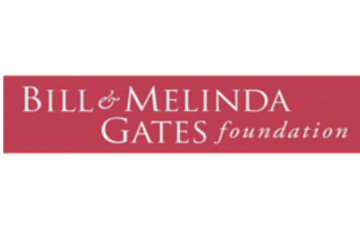
Building Malaria Modeling Capacity in Sub-Saharan Africa
Background
While mathematical modeling approaches have been used to understand malaria epidemiology and thepotential impact of antimalarial interventions for some time, National Malaria Control Programs (NMCPs)across sub-Saharan Africa are showing a growing interest in working with modeling units to shape theirNational Strategic Plans and Global Fund applications, as well to evaluate the ongoing impact of controlprograms. Furthermore, R&D partners in the malaria space are also increasingly working with modelers aspart of the product development process, using quantitative insights to shape target product profiles, plantrials, and understand the market for a given product.At present, many of the malaria modeling units contributing to these efforts are based in academic institutions in the Global North. At the Bill & Melinda Gates Foundation, we believe that having local modeling expertise embedded within or easily accessible to NMCPs will improve programs’ uptake of modeling as a strategic planning and evaluation tool, ultimately leading to improved data-driven decisionmaking by NMCPs. However, for this vision to be realized, the malaria modeling ecosystem across subSaharan Africa needs to be strengthened.
The Challenge
This RFP seeks innovative approaches to building a stronger malaria mathematical modeling ecosystemin sub-Saharan Africa. We are looking for 1 to 3 years projects that will achieve one or more of the objectives below:• Increasing the number of Ph.D.-trained mathematical modelers with malaria expertise based atsub-Saharan African institutions• Improving NMCP’s understanding of and engagement with modeling approaches as a tool that cansupport strategic planning and/or evaluation work• Connecting malaria Product Development Partners (PDPs) with sub-Saharan African modelers• Bringing together discrete modeling units across sub-Saharan Africa to share expertise• Improving modelers’ access to timely, high-quality data
Funding level: up to USD $1,000,000 per year for each project, with a grant term of 1 to 3 years depending on the scope of the project.
For more information about the opportunity or to apply visit the Grand Global Challenges website.
Read more

By: Derek Tobias
Due Date: Jan, 13, 2022
Health and nutrition
+1
Leave a comment
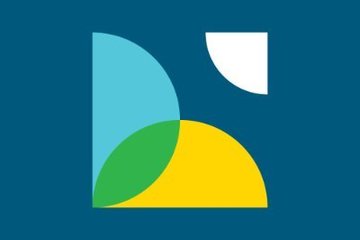
Expressions of Interest: Training and Evaluation Datasets for African Languages
The purpose of this call for EOI is to identify projects to submit full proposals to develop open and accessible datasets for machine learning applications that will enable natural language processing for languages in sub-Saharan Africa. The ability to communicate and be understood in one’s own language is fundamental to digital and societal inclusion. Natural language processing techniques have enabled critical AI applications that facilitate digital inclusion and improvements in numerous fields, including: education, finance, healthcare, agriculture, communication, and disaster response, among others. Many advances in both fundamental and applied NLP have stemmed from openly licensed and publicly available datasets.However, such open, publicly available datasets are scarce to non-existent for many African languages, and this means the benefits of NLP are not accessible to speakers of these languages. Where relevant datasets do exist, they are often based on religious, missionary, or judiciary texts, leading to outmoded language and bias. There is a need for openly accessible text, speech, and other datasets to facilitate breakthroughs based on NLP technologies for African languages.Lacuna Fund seeks Expressions of Interest (EOIs) from qualified organizations to develop open and accessible training and evaluation datasets for ML applications for NLP in sub-Saharan Africa. The TAP recognizes the importance of datasets that would create significant impact regardless of the number of speakers of the included language, as well as the need for multi-lingual datasets.EOIs may include, but not limited to:
Collecting and/or annotating new data;
Annotating or releasing existing data;
Augmentation of existing datasets in all areas to decrease bias (such as gender bias or other types of bias or discrimination) or increase the usability of NLP technology in low- and middle-income contexts;
Creating small, higher-quality benchmark data for NLP tasks in low-resource African languages.
While the focus of Lacuna Fund is primarily on dataset creation, annotation, augmentation, and maintenance, proposals may include the development of a baseline model to ensure the quality of the funded dataset and/or to facilitate the use of dataset for socially beneficial applications.
For more information about the opportunity, click here
Read more

By: Derek Tobias
Due Date: Dec, 3, 2021
Culture and society
+1
Leave a comment
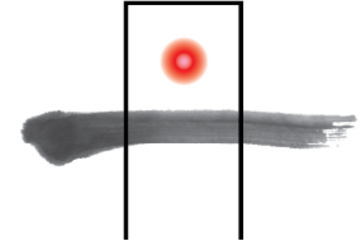
Yidan Prize 2022 for Advancing Ideas in Education
Nominations are now open for the Yidan Prize 2022 to create a better world through education. The Yidan Prize is the most significant accolade in education. Tell us about the individuals and teams with the greatest potential, and we could help them on their way.Each year, the Yidan Prize is awarded to individuals and teams in two areas:
Education Research: The theories of learning—science, psychology, statistics—that can help educators understand different approaches with a methodical lens.
Education Development Policy and practice in learning: new methods and ways to make education more widespread—so they can champion techniques that work.
We see these prizes—and the events and networks surrounding them—as a way to bring bright minds together to exchange ideas. That’s why the two prizes work in harmony: to build a network of educational experts who’re as strong in research as they are in practical application, in classrooms across the world.For example: we awarded our first Education Research Prize to Professor Carol Dweck: her pioneering work in growth mindset underpins and inspires practice. And as our 2020 Education Development laureates at CAMFED (the Campaign for Female Education) work with marginalized girls in sub-Saharan Africa, they partner with research insitutes to track what’s most effective, who’s benefiting and the costs.Where any individual or team’s work covers both research and development, we welcome two submissions: one for research and one for development.Our prizes are open to teams of up to three. That could be a research group working on a project together, or even several people contributing to the same idea from separate organizations—they don’t have to work together. If you want to nominate a larger team, choose up to three representatives. If a team does win either award, they’ll each get their own individual medal and certificate, and split the cash prize and project fund.
For more information or to nominate someone, please visit the Yidan Prize website
Read more

By: Derek Tobias
Due Date: Mar, 31, 2022
Education
Leave a comment
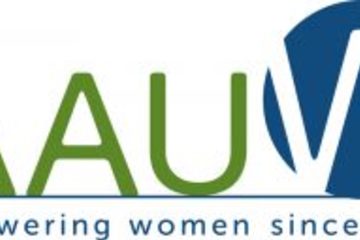
AAUW International Fellowships
International Fellowships have been in existence since 1917. The program provides support for women pursuing full-time graduate or postdoctoral study in the United States to women who are not U.S. citizens or permanent residents, and who intend to return to their home country to pursue a professional career. A limited number of awards are available for study outside of the U.S. (excluding the applicant’s home country) to women who are members of Graduate Women International (see the list of GWI affiliates). Both graduate and postgraduate studies at accredited U.S. institutions are supported.
Applicants must have earned the equivalent of a U.S. bachelor’s degree by the application deadline and must have applied to their proposed institutions of study by the time of the application. Recipients are selected for academic achievement and demonstrated commitment to women and girls.
Recipients return to their home countries to become leaders in business, government, academia, community activism, the arts or scientific fields.
For more information or to apply, visit the AAUW webiste.
Read more

By: Derek Tobias
Due Date: Nov, 15, 2021
Education
Leave a comment

Gandhi-King Scholarly Exchange Initiative
The Study of the U.S. Branch (ECA/A/E/USS), Office of Academic Exchange Programs, Bureau of Educational and Cultural Affairs (ECA), invites proposal submissions from accredited U.S. post-secondary education institutions, including Minority Serving Institutions (MSIs) such as Historically Black Colleges and Universities (HBCUs); community colleges, liberal arts colleges, public and private universities; and other U.S. public and private non-profit organizations meeting the provisions of a 501(c)3 organization (see NOFO, section C. Eligibility Information) for the design and implementation of the new Gandhi-King Scholarly Exchange Initiative to take place over six weeks (inclusive of travel days), virtually and in-person, beginning in summer 2022. The Gandhi-King Scholarly Exchange Initiative will include four components: a) a one-week virtual program component; b.) a two-week academic residency in the United States; c) a two-week experiential learning program in India; and d) a multi-day closing forum.
The Gandhi-King Scholarly Exchange Initiative (Exchange) aims to inspire young leaders from the United States and India to work together to advance civil rights, social justice, and inclusion locally, nationally, and globally by exploring the history and legacies of Mahatma Gandhi and Dr. Martin Luther King, Jr. The Exchange will seek to develop participants’ leadership skills and equip them with the tools and networks to support these endeavors. Approximately 20 undergraduate and graduate students ages 18-25, ten (10) from the United States and ten (10) from India, will participate in the program. The program will draw on the long history of friendship and shared interests between the United States and India, and will provide participants with opportunities for interaction with diverse groups of Americans and Indians. The Exchange will also include opportunities for continued follow-on engagement once participants return to their respective countries. Please see the full announcement for additional information.
For more information or to apply, visit grants.gov
Read more

By: Derek Tobias
Due Date: Nov, 22, 2021
Culture and society
+1
Leave a comment

No Preview Available
Online Lecture Series - Poverty Violence and Migration in the Red Sea Region
This lecture series will showcase new research into the historical causes and contemporary dynamics of structural poverty, political violence, and large-scale migration in the Red Sea Region. The invited speakers each recognize the continuing importance of longstanding intra-regional connections, and their lectures will shed light on the ways that the coping strategies currently pursued at individual, household, community, and state levels are shaped by the legacies of past practices.
More information can be found at:
https://www.zmo.de/en/events/lecture-series/vortragsreihe-im-akademischen-jahr-21-22
To obtain the zoom meeting details, please register at:
https://tinyurl.com/5xswd368
This lecture series is organized by Dr. Steven Serels of the Leibniz-Zentrum Moderner Orient in Berlin in coordination with RedSeaNet.
Read more

By: Raquel Acosta
Due Date: Oct, 13, 2021
Culture and society
+1
Leave a comment
No Preview Available
Global South Feminist Scholar Award
This award is conceived to recognise the significant contributions of mid-career to senior scholars in and from the Global South to feminist and gender scholarship in IR broadly defined. Hegemonic Euro- and West-centrism often renders the important work of this category of scholars invisible as study after study from within and without the ISA has shown. Because their subjects, methods, sources, resources, theories and frameworks are evaluated according to standards of scholarship set by the Global North academy, this work is often devalued and invisibilized. At the same time, scholars from the North, feminist or not, draw upon these and other indigenous knowledges, often without acknowledgement, to better situate their own research on those contexts.
Thus, this award addresses the acknowledged tendency for epistemologies of the Global South to be marginalised and unaccounted for both in IR specifically, and global knowledge production in general, and for feminist scholarship to be diminished within the various disciplines. It aims to decentre whiteness, recognise other universes of knowledge, acknowledge the contributions of Global South studies to the global academy, and engender the decolonisation of the field of feminist and gender studies, and of international studies itself.
In doing these, the proposed award enhances the ongoing efforts at inclusion and transformation within the FTGS, complementing existing awards which recognise excellence in feminist research, while at the same time filling a gap in redefining excellence in more global and inclusive terms.
Eligibility
Scholars in the area of feminist theory and gender studies whose scholarship have extended the frontiers of the discipline and advanced our understanding about Global South contexts in particular
Must be from the Global South and based at institutions located there
Must have made significant and demonstrable impact (locally or internationally) on the fields of feminism, gender and international studies, broadly defined, either through scholarship and teaching, mentoring, leadership, policy-relevant work, or any combination of these
Targets mid-career to senior scholars specifically
Nominees need not be members of ISA and FTGS at the time of nomination, but awardees are expected to become members of ISA and FTGS upon conferment of the award
Nominations
The award committee eagerly solicits nominations from all across the globe of individuals who meet the above criteria. Given the structural barriers already identified above, the newly-constituted award committee will also actively reach out to individuals, institutions and networks in the Global South for nominations.
Nominators may submit (a) a nomination letter highlighting the fitness of the nominee for this award (b) nominee’s abridged CV, no more than 5 pages long, and (c) supporting letters (if available) from persons familiar with the nominee’s scholarship and work.
Nomination and supporting letters should not exceed two pages each.
Self-nominations are welcome.
Prize
The recipient will receive a certificate and a cash prize of $800.
How to apply
Submit all documents by email to the chair of the award committee, Olajumoke Yacob-Haliso, yacob-halisoo@babcock.edu.ng. The deadline for nomination this year is October 18, 2021.
About the FTGS
The Feminist Theory and Gender Studies section of the International Studies Association brings together scholars who apply feminist theory to International Relations or look at the field through a gender lens. For more information, visit: https://www.isanet.org/ISA/Sections/FTGS.
Read more

By: Raquel Acosta
Due Date: Oct, 18, 2021
Culture and society
+1

Leave a comment